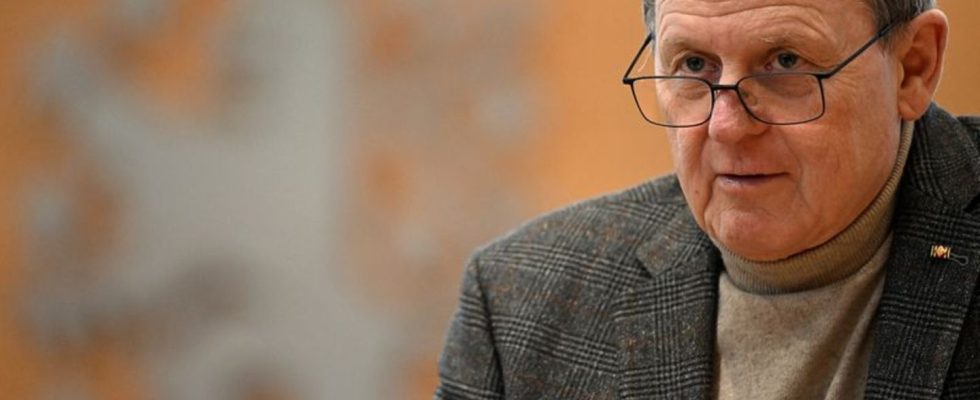Choose
Ramelow: The need for a minority government is met
“I’m fighting for red-red-green,” says Thuringia’s Prime Minister Bodo Ramelow. photo
© Martin Schutt/dpa
According to surveys, Thuringia will once again have a difficult time forming a government after the state elections in September. Thuringia’s Prime Minister Bodo Ramelow has already made his decision.
Thuringia’s Prime Minister Despite uncertainties about the SPD’s plans, Bodo Ramelow is sticking to the red-red-green government constellation in Thuringia. “I fight for red-red-green,” said the left-wing politician to the German Press Agency in Erfurt.
A continuation of the Left’s alliance with the SPD and the Greens is his goal in the state elections planned for September 1st. Ramelow, who is supposed to bring the Left the necessary votes again as the top candidate, has thus decided against his two coalition partners. In the last election survey in Thuringia, red-red-green did not have a majority.
Ramelow: Tablecloth is not cut
In 2014, Ramelow ended the more than twenty-year CDU government in Thuringia and, with the SPD and the Greens, entered into the first red-red-green coalition with a left-wing leader in Germany. Since 2020, Red-Red-Green has governed Thuringia as a minority coalition, which repeatedly causes tensions internally.
“The tablecloth between us has not been cut,” said Ramelow, despite the quarrels that arose, especially last year, over migration policy and a change of ministers carried out by the Greens. The problems in migration policy are also a “problem that can be solved together,” said the head of government.
“Don’t aim for a minority government”
Ramelow expressed reservations about another minority government, which cannot make decisions in the state parliament without negotiations with the opposition. “I’m not aiming for a minority government. My needs are actually met.”
The SPD and the Greens also want to avoid a minority government as much as possible. SPD state leader and Interior Minister Georg Maier recently emphasized the Social Democrats’ claim to government, but did not make a firm commitment to the continuation of the red-red-green coalition.
In an election survey by Insa on behalf of Funke Medien Thüringen almost ten months before the state election, the Left, which won the state election in 2019, got 20 percent. It was behind the AfD, which the state Office for the Protection of the Constitution classified as right-wing extremist, with 34 percent and the CDU with 22 percent. The SPD got 9 percent. The Greens, like the FDP, had to worry about jumping the five percent hurdle.
Election surveys are generally always subject to uncertainty. Among other things, weakening party ties and increasingly short-term voting decisions make it more difficult for opinion research institutes to weight the data collected. In principle, surveys only reflect the opinion at the time of the survey and are not predictions of the election outcome.

